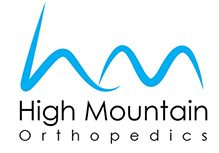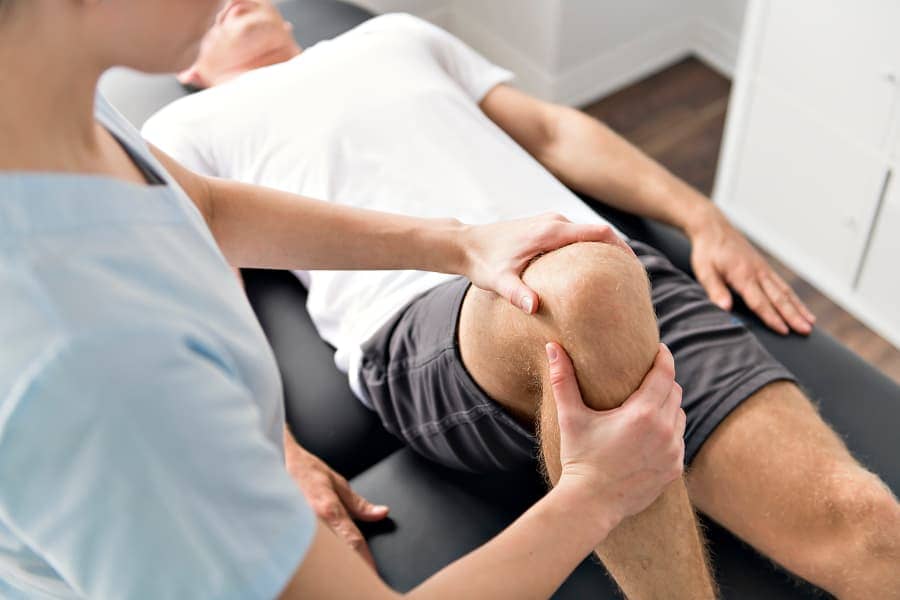Cartilage Injury Treatment
Many cartilage injury conditions can be treated through conservative methods, but some may require surgery to effectively relieve pain and restore function to the joint. Your doctor will decide which type of treatment is best for you after a thorough evaluation of your condition. Contact Us TodayTreating Knee Cartilage Injuries in Wayne, New Jersey
If you’re experiencing damaged or torn cartilage in the knee, the pain and stiffness can keep you from doing the activities you love. These kinds of injuries are more likely to occur in younger, athletic patients, but they can also present in older patients as cartilage degrades over time. The team of medical experts at High Mountain Orthopedics provides both surgical and non-surgical options for patients in Wayne, NJ.
About Knee Cartilage Injuries
A cartilage injury, often a meniscal tear, is one of the most common forms of knee injury. The menisci are two small pieces of C-shaped cartilage that cushion the joint between the femur (thighbone) and the tibia (shinbone). The location of the injury can affect the course of treatment. The menisci have two zones:
- “Red” Zone: This is the outer area of the meniscus that has continual blood flow, even after the injury. It may be able to heal on its own with supportive treatment.
- “White” Zone: This is the inner part of the meniscus that makes up approximately two-thirds of the cartilage. Because it lacks blood vessels to circulate vital nutrients, it may not heal on its own.
While the cause of a meniscus tear is usually related to sudden, sharp movements or traumatic impact to the knee joint, some tears occur as a result of advanced age and can present in older patients who are not involved in rigorous physical activity. Because of the worn-down cartilage, it may only require the lifting of a heavy object or a sudden fall to occur.
Torn Cartilage Causes, Risk Factors, and Symptoms
Torn cartilage in the knee should be treated as soon as possible. The longer this condition goes untreated, the greater the chances are of developing knee arthritis and other ailments. A knee cartilage injury can result in a variety of symptoms that affect everyday movement. These symptoms may include:
- Difficulty straightening your leg fully
- Locking knee joint
- Spontaneous weakness
- Pain, especially when twisting or rotating
- Popping sensation in the affected area
- Swelling and/or stiffness
Our team of orthopedic specialists, surgeons, and doctors can diagnose your condition and help put you on the path towards recovery.
Treatment Options
Diagnostic testing is the first step to identify the condition. Your doctor may recommend an MRI to gain a detailed view of the joint. In some cases, we may also recommend a knee arthroscopy to examine and repair the area. The following treatments may also be recommended:
- Anti-inflammatory NSAIDs to help reduce swelling, aches, and pains
- Stretches and gentle exercise
- Discontinuing impact activity
- Resting the affected area
- Icing the injury
- Wrap swollen area with a bandage or compressive sleeve
If surgery is recommended as the most ideal course of treatment, our doctors will either remove the unstable edges of the cartilage and/or mend the tear. Our team works with you to achieve a treatment plan that’s tailored to your individual needs.
Schedule an Appointment Today
If you think you’ve torn cartilage in your knee, contact us to schedule an office or telemedicine appointment. At High Mountain Orthopedics, we treat a variety of conditions and offer surgical and non-surgical support for patients in Wayne, NJ.
Schedule An Appointment Today!
If you or someone you know is in pain, we can help. Take the first step and schedule an appointment.

